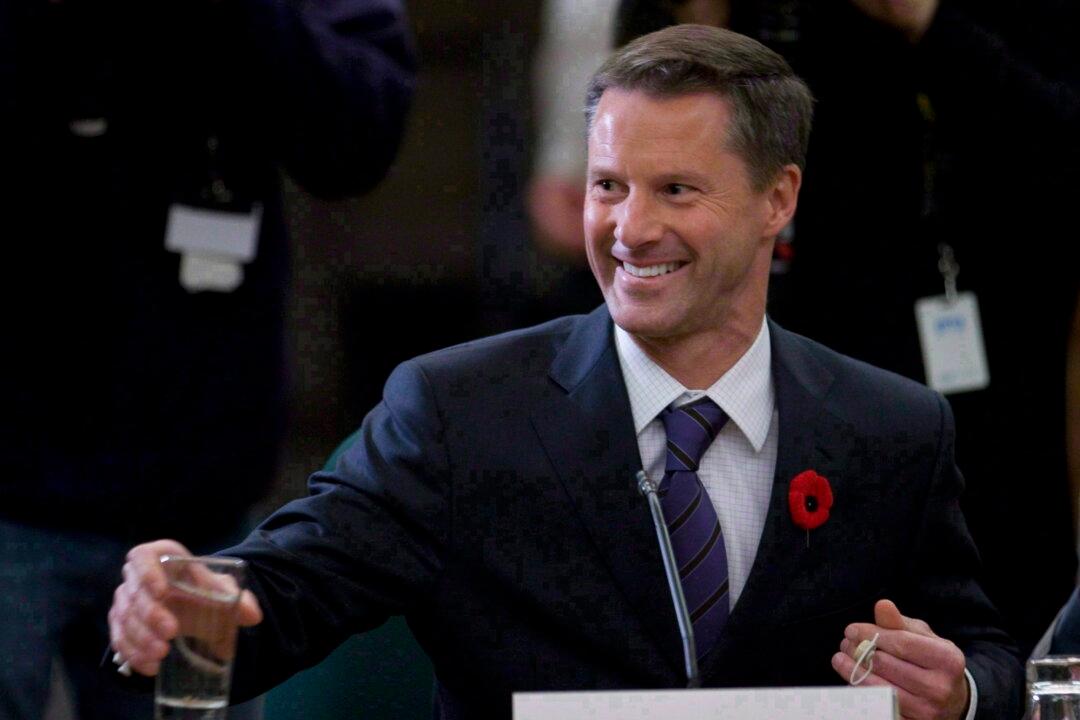News Analysis
PARLIAMENT HILL—Canada’s trade deal with the European Union will affect generations of Canadians, but it’s little more than a side show to what’s going on with the Red Chamber scandal.
There’s blood in the water and the opposition is circling, with reporters hungry for whatever comes next.
But in a scene that plays out all too often, the scale of controversy is hard to gauge from within the Ottawa bubble. While there is chatter about whether fallout from the Senate expense scandal and coverup will dethrone Prime Minister Stephen Harper, the average Canadian may not be so moved.
At least that’s the opinion of John Wright, a senior VP at Ipsos Reid. He cites an Ipsos poll for CTV that finds the Conservatives have strong support (73 percent) for a motion being debated in the Senate to suspend senators Mike Duffy, Pamela Wallin, and Patrick Brazeau without pay—even if many Canadians think Harper has not handled the situation well (67 percent).
Despite grumblings from Tory MPs and senators who don’t agree with the Senate motion—which denies the three senators a fullsome review of their conduct—Harper has not turned off the Tory base. Any suggesting this could mark the downfall of the Conservatives is overblown, Wright said.
“I don’t think we are into a slide,” he said.
Two thirds of Canadians could hate Harper, and he could still score a majority, he explained. It is telling, however, that 80 percent of Canadians want an inquiry, Wright added.
But to date, Harper is still well north of the numbers of Brian Mulroney and Michael Ignatieff when they each led their parties to collapse at the polls.
Harper might, however, struggle to secure a majority or even a minority if an election was held now. Nanos Research and Forum Research both put the Tories behind the Liberals if an election were held today. It’s worth noting, however, that older Tory supporters are much more likely to cast ballots than supporters of the NDP or Liberals.
What is patently clear is that the whole mess was made worse by efforts in the PMO to cover it up. If early investigations that found the prominent Tory senators made improper expense claims had simply run their course, it is unlikely Harper’s credibility would have ever been questioned.
Now Harper is facing a daily grind in question period about what role he had in directing PMO operatives to intervene in the Senate’s handling of the matter, or pressuring the senators into admitting fault and paying back the expenses so the matter would go away.
However, it is possible that the PM’s narrative—that he has been trying to hold senators to account—holds more weight than political observers in Ottawa credit.
Passive observers may find the nuances of the ongoing controversy too fine to follow. Like what exactly Harper did or didn’t do wrong when his former Chief of Staff Nigel Wright cut Duffy a cheque for $90,000 to repay expense claims deemed inappropriate—a finding Duffy maintains is unjust.
Or why exactly it matters that lawyers in the PMO had a hand in negotiating that $90,000 cheque. Or why it makes any difference that the Conservatives paid Duffy’s legal fees for his own lawyers in those negotiations.
Will Wright Follow Duffy’s Lead?
But even if it is the case that Canadians are not as enthralled with intermittent bombshells landing in the Senate as the Parliament Hill crowd is, that could still change.
Duffy has been using Parliamentary privilege, which protects him from libel charges, to unload scathing criticism of the PMO during his speaking time in the Senate. He is also exposing the backroom discussions he had with the PMO about how he was directed to handle the issue.
In doing so, Duffy has managed to change the channel on his own wrongdoing while perhaps permanently damaging Harper’s credibility.
But now, many are wondering whether Nigel Wright could do the same. In the weeks leading up to the current motion to suspend the senators, Duffy made vague comments suggesting he had a lot to say about the accusations against him and the role of the PMO.
Duffy, who has little left to lose, has been playing his hand. With Harper now placing blame for the PMO’s involvement on his former chief of staff, some are starting to wonder if Wright might come out swinging as well.
On Monday, Harper changed his tack on Wright. Previously the PM had praised Wright, accepting his resignation but defending his motives. The Tory line was that Wright wanted to make sure taxpayers were paid back, hence the $90,000 cheque.
Now, however, Harper is saying Wright was fired for bad conduct, tarnishing the reputation of a man who helped form the Conservative party in the years when the Progressive Conservatives and Alliance parties were dividing the conservative vote.
To date, Wright has said nothing. But many wonder whether that will hold if the PM continues to focus blame on his former chief of staff.





